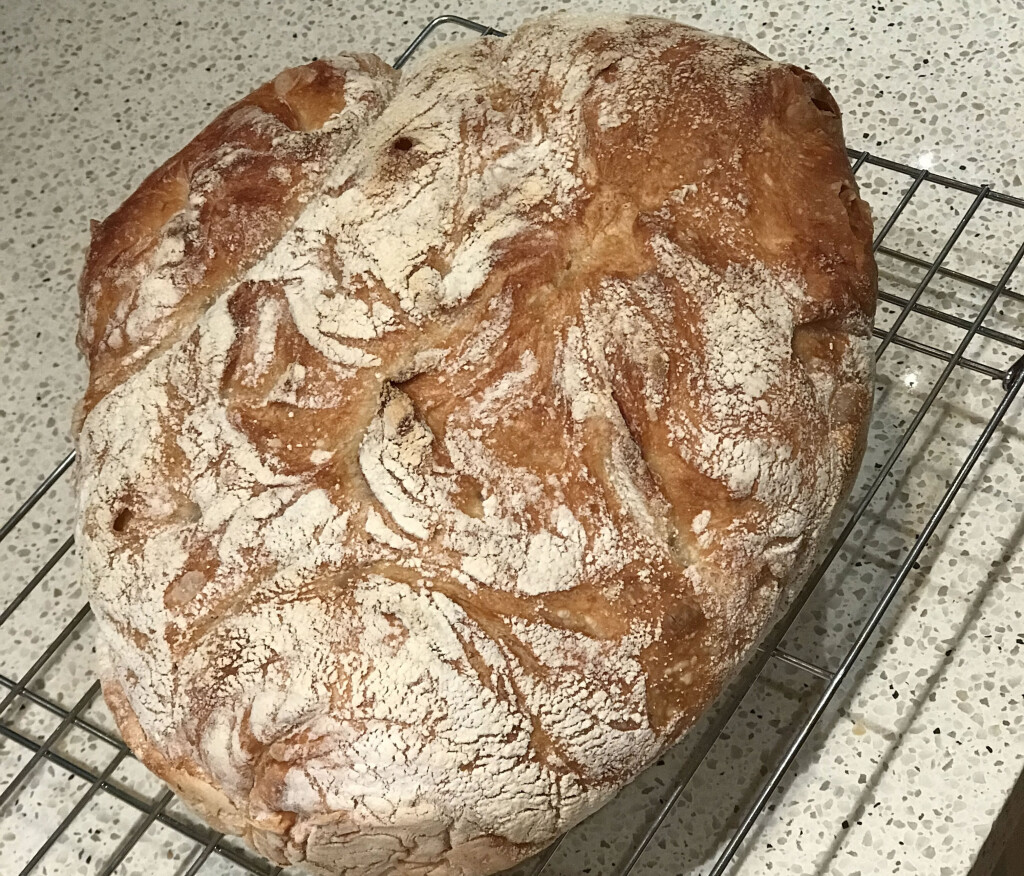
Parashat Eqev
Deuteronomy 7:12 – 11:25
Bread is one recurrent motif in our Torah portion. The manna – the “bread” that fell from heaven sustained the Israelites for 40 years. Moses explains that the message of this heavenly bread was “for it is not by bread alone that a person will live; rather, it is from all that issues from God’s mouth (motza pi YHVH) that a person shall live.” (Deut. 8:3)
Of course, these famous words are taken to mean that we are not sustained by physical nourishment alone. We need spiritual sustenance, too, the sustenance that comes from the mouth of God. Yet the manna was, indeed, physical material that sustained Israel. It was bread, but it was different, too. It came from heaven, from God’s mouth. What comes from God’s mouth thus conveys another possible meaning. It conjures up the image of a mother chewing her baby’s food before feeding it to them. I recall a friend of mine telling me, when we were kids, that he remembered his mother chewing up food like that for his younger brother – chewing it up and then spitting it out so as to feed the baby – because they lived in a place where kosher meat baby food was not available. The manna is food that is easy to digest because it is chewed up specially for us by Momma.
But regular bread is different. It takes hard work to plant and grow the grain, to harvest it and grind it, to mix it and knead it into dough and then to bake it. “By the sweat of your brow shall you eat bread.” (Gen. 3:19) Yet, we think of none of this when we make the blessing before eating our hard-earned bread. We say, “You abound in blessings, Eternal One, our Almighty God, Majesty of the Universe, ha-motzi – Who takes bread from out of the earth.” The verb is the same one we use to describe God extricating us from Egypt! But how can that be? Bread does not emerge from the earth, liberated, as the Israelite people were freed from slavery. Or does it? And who does all that liberating, if not the human being? Why are we praising God for producing the bread when it is the result of “our own strength and the power of our own hands” (Deut. 8:17)?
Moses worried that this is the way we would forget about God once we entered the Promised Land and had to make our own bread. He sought to caution us that God would no longer be pre-chewing our food for us. We will have grown up. But God would not disappear. Our maturing would not entail losing our status as God’s dependents. So, our prescribed blessing for bread seeks to remind us that it is God Who tells the ground to take the seed, and it is God Who tells the seed to grow and transform itself (- just like us), and it is God Who tells the flame to bake and transform the dough.
It is not by bread alone that we live. The liberating power of transformation that goes forth out of God’s mouth (motza pi YHVH) is what sustains us and keeps us alive.
Shabbat Shalom
Rabbi David Greenstein
Subscribe to Rabbi Greenstein’s weekly d’var Torah
Photo by Adrienne Shulman of a recent loaf of bread she made.
Thank you to John Lasiter for suggesting the title and selecting an image for this Torah Sparks – Rabbi Greenstein
- Toby Stein: In Memoriam - Thu, Feb 8, 2024
- Faithfulness and Hope: Parashat Sh’lach - Thu, Jun 23, 2022
- Past Their Prime: Parashat B’ha`a lot’kha - Thu, Jun 16, 2022
